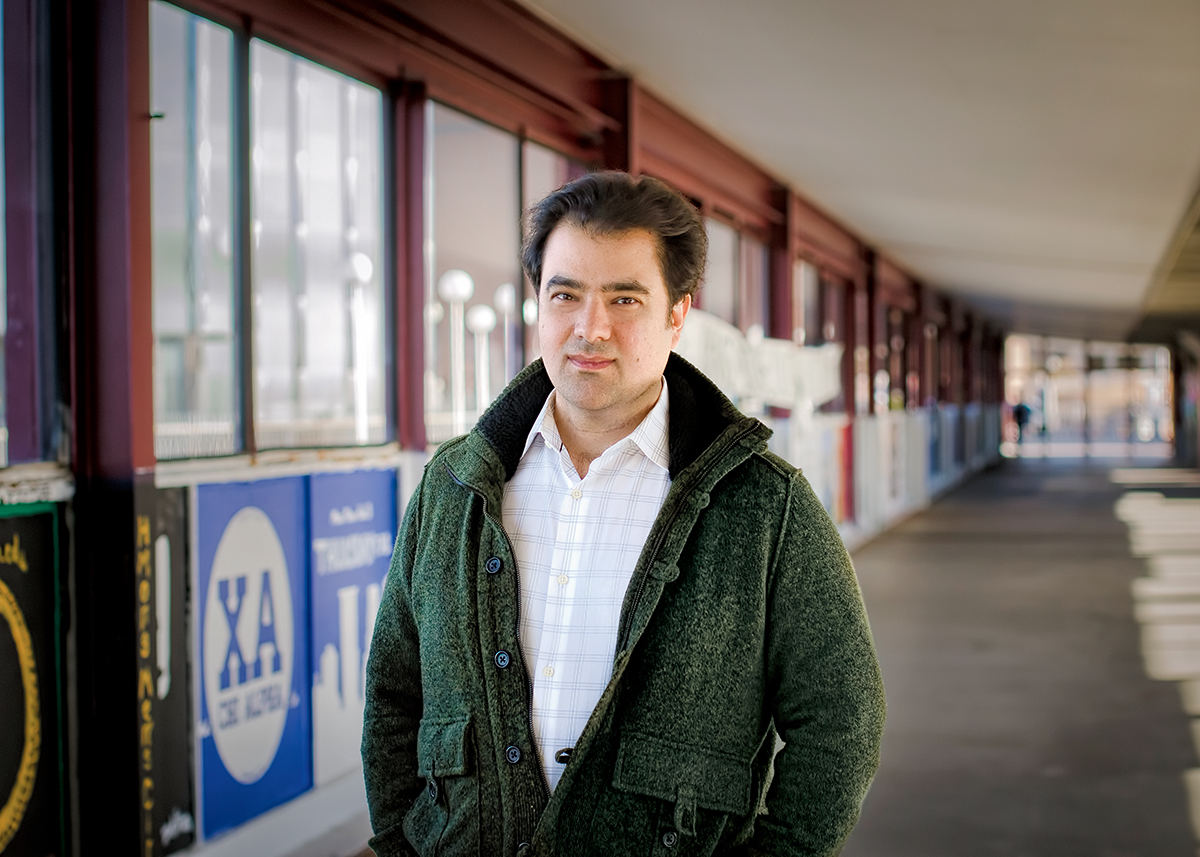Roozbeh Shirazi was a first-grade teacher in a school across the Hudson River from the World Trade Center when hijacked planes destroyed the towers on September 11, 2001. He had always been interested in the intersection of education and politics, but he did not anticipate the tragic effects of 9/11 in his own classroom.
Shirazi saw his school—home to a diverse student population and many English language learners—change almost overnight. From a place that welcomed difference, it became one that emphasized a particular kind of national unity that he felt silenced the cultural plurality it had welcomed.
Today, Shirazi is an assistant professor in the Department of Organizational Leadership, Policy, and Development where his work focuses on youth citizenship, empowerment, and political participation. Recently, he conducted research at Twin Cities high schools, where he studied the ways in which students build—or don’t build—cultural citizenship in the classroom.
“I wanted to know how youth are making sense of what it means to be American in today’s United States, given the inflamed political rhetoric around immigrants, refugees, and Muslims in particular,” says Shirazi.
He is not as interested in why students perform differently on standardized tests, he explains, as in how they experience belonging within an institution—whether they feel welcomed and valued and can see themselves and their stories reflected in their learning.
He’s also busy expanding on work he did for his doctoral dissertation at Teachers College, Columbia University. Beginning in 2014, Shirazi has traveled back to Jordan during the summer months to gather data about university students’ school-to-work transitions. There he has examined the ways higher education serves as a strategy for social mobility during times of political uncertainty in a country experiencing an array of social, economic, and humanitarian challenges.
During his early graduate work, Shirazi and several other graduate students and faculty also traveled to Afghanistan, where they worked with the Afghan Ministry of Education to develop curricula and textbooks and lead development workshops and teacher training.
Shirazi calls his early international work a crash course in the politics of international educational development and in realizing the global importance of school as a political space. Now that he’s a professor, he finds himself circling back to the same questions that drew him to the field.
“Schools are important political venues,” he says. “They’re places where we learn about what the nation is, what counts as politically acceptable, our history, our collective memory.”
Building bridges
Formal citizenship—legal rights and claims that people have in relation to the state—differs from cultural and social citizenship, which describes how people identify and are recognized as members of a larger group, according to Shirazi.
With his research and teaching, he hopes to provide school leaders and educators with insights to bridge the gap that can occur between the two and create more comprehensive and equitable notions of what it means to be a citizen.
“It’s important to try to bring these two approaches together,” he says. “Political rhetoric right now is pointing to different tiers of citizenship for different kinds of people.”
A second-generation American himself, Shirazi knows his experiences help him see educational issues of race and culture not just as a teacher or researcher but also as someone who shares experiences with the students he studies.
In his view, fostering socially transformative civic engagement in schools means more than planting a garden or hosting a food drive. The issue is even bigger than textbooks and lesson plans. To really make a difference, Shirazi says, educators, administrators, and policymakers must be open to re-evaluating core ideas about schooling and recognizing the ways educational institutions have historically enfranchised some at the expense of others.
“Social hierarchies are not something that get transformed by a new curriculum or professional development,” Shirazi says. “We need to be open to rethinking our very core and basic assumptions about schooling and the best way to educate kids. … It’s a big process, and it’s not a quick-fix process.”
Shirazi sees hope. He is encouraged by student activism that makes this a compelling time to be in the field.
“We are in a historical moment that is incredibly important, challenging, and yet exciting,” he says. “Look at the recent organizing and collective action that helped us declare this university to be a ‘sanctuary campus’ for undocumented students.”
Here and in other institutions, he observes, students and educators are questioning the meaning of what it means to be educated—educated for what purposes, and for what kind of citizenship and social membership?
“These questions matter because education and schooling in particular are implicated in how we think about our politics, about economic opportunity, and about social change,” says Shirazi. “As long as we are willing to question and willing to look critically at what is being proposed in our interests, I think we will have a fighting chance.”
Read more about Roozbeh Shirazi and the Department of Organizational Leadership, Policy, and Development.
Story by Ellen Fee | Photo by Susan Andre | December 2016
